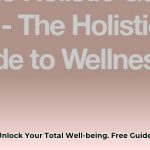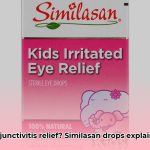Ever feel drawn to a more natural approach to wellness? “Pondershort” might pique your interest. While the term itself is relatively new and lacks a traditional medical definition, it reflects a growing interest in using natural remedies like herbs and mindful practices to enhance well-being. This guide explores the world of natural remedies, offering insights and practical tips for incorporating them into your wellness routine. Whether you’re seeking relief from a headache, struggling with anxiety, or simply curious about natural healing, this guide provides a starting point for your exploration.
Understanding Natural Remedies
Let’s be upfront: “pondershort natural remedies” isn’t an established medical term. You won’t find it in textbooks or traditional healing manuals. Likely originating online, it seems to encompass the growing desire for natural, plant-based approaches to supporting overall wellness. While the term itself is somewhat enigmatic, the intent behind it is clear: people are searching for gentler, holistic ways to improve their health. This guide addresses that intent, exploring common and time-tested natural remedies that align with the spirit of “pondershort.”
Nature’s Toolkit: Exploring Common Remedies
Think of natural remedies as allies on your wellness journey. They aren’t miracle cures, but they can be valuable tools. Before incorporating any new remedy into your routine, research and consult with a healthcare professional—especially if you have existing health conditions or take other medications.
| Remedy | Traditional Uses | Potential Benefits | Considerations |
|---|---|---|---|
| Turmeric | Inflammation, cell damage | May reduce pain and inflammation, offer antioxidant support | Possible interaction with blood thinners; stomach upset in some. |
| Ginger | Digestion, nausea | Could soothe upset stomach, reduce nausea, ease mild pain | Might lower blood sugar; occasional heartburn. |
| Chamomile | Calming, sleep | May promote relaxation and sleep, offer anti-inflammatory benefits | Potential allergies for those sensitive to daisies; drug interactions possible. |
| Peppermint | Digestion, headaches | Could ease indigestion, freshen breath, relieve tension headaches | Can exacerbate heartburn in some. |
| Elderberry | Immune support | Might reduce cold and flu severity and duration | Cook thoroughly before consuming; raw berries can cause nausea. |
Building Your Wellness Plan
Natural remedies are not quick fixes; they support your body’s natural healing processes over time.
- Start Slow: Introduce one remedy at a time to observe your body’s response.
- Research: Learn about each remedy’s potential benefits and side effects from reliable sources like reputable herbalism books or websites such as the National Center for Complementary and Integrative Health (NCCIH).
- Consult Your Doctor: Especially important if you’re pregnant, breastfeeding, have health conditions, or take other medications.
- Listen to Your Body: If something doesn’t feel right, discontinue use and consult your healthcare provider.
Beyond Remedies: A Holistic Approach
Holistic wellness goes beyond remedies. It encompasses nurturing your mind, body, and spirit:
- Nourishing Your Body: Prioritize a balanced diet rich in whole foods.
- Moving Your Body: Engage in regular physical activity you enjoy.
- Prioritizing Sleep: Aim for 7-9 hours of quality sleep.
- Managing Stress: Practice stress-reduction techniques like meditation or yoga.
These lifestyle factors form the foundation for a thriving body, enhancing the potential benefits of natural remedies.
Delving Deeper into Holistic Healing
Holistic healing seeks to understand the why behind symptoms. Rather than simply suppressing a headache, a holistic approach might explore factors like stress, diet, and sleep. Natural remedies can complement this approach, offering gentler options for common ailments.
Pondershort in Practice: Addressing Common Ailments
While “pondershort” lacks a formal definition, we can explore how natural remedies might address common issues:
Nausea
Ginger, containing gingerols and shogaols, may offer relief from nausea. Research suggests these compounds have anti-inflammatory and nausea-reducing properties.
- Dosage: 1-2 grams of fresh ginger root or 250-500mg in capsule form (check product labels).
- Preparation: Ginger tea, capsules, candied ginger, or fresh ginger in meals.
- Precautions: Can interact with certain medications (e.g., blood thinners); consult your doctor if pregnant or breastfeeding.
Sore Throat
Honey’s viscous nature may soothe a sore throat. Some studies suggest it can be as effective as some over-the-counter cough suppressants.
- Dosage: 1 tablespoon mixed with lemon juice in warm water.
- Precautions: Monitor intake if you have diabetes due to natural sugar content.
Headaches
Peppermint oil’s menthol content creates a cooling sensation that may relieve tension headaches.
- Dosage: A few drops massaged onto temples and forehead.
- Precautions: Avoid contact with eyes; discontinue use if skin irritation occurs.
Important Considerations
This is just a glimpse into the world of natural remedies. Individual responses vary, and what works for one person may not work for another. These remedies are not replacements for professional medical advice. Consult your healthcare provider if you have any concerns or pre-existing conditions.
Is Pondershort Right for You?
Given the ambiguity surrounding “pondershort,” carefully examine any product bearing this name. Scrutinize labels for ingredients, manufacturer information, and usage instructions. Consult a healthcare professional before trying anything new, especially if you have underlying health conditions or take other medications.
Natural Remedies: Benefits and Risks
Natural remedies sometimes appeal because they align with a desire for gentler, less processed solutions. Some believe they address root causes rather than just symptoms. However, it’s essential to be aware of potential risks, including allergic reactions, drug interactions, and potential toxicity. The quality and purity of natural remedies can also vary.
| Potential Benefits | Potential Risks |
|---|---|
| Addressing root causes | Allergic reactions |
| Gentler action | Drug interactions |
| Potentially fewer side effects | Quality and dosage variability |
| Holistic approach | Potential toxicity |
| Alignment with personal values | Limited scientific evidence (in some cases) |
Consult Your Healthcare Provider
Before using any natural remedy, consult a healthcare professional. They can assess potential risks and guide you toward safe and effective usage, especially for remedies like “pondershort” with limited information. They can also help you determine if a remedy is suitable for you based on your individual health status and current medications.
The Power of Knowledge
Empower yourself through research. Seek evidence-based information from reputable sources and be cautious of anecdotal evidence. Consult reliable websites, scientific journals, and books. Make informed choices that align with your values and health needs, always in consultation with your healthcare provider. The field of natural remedies is constantly evolving, so staying informed is vital.
- How To Create Free Electricity Using Home Renewable Sources - January 30, 2026
- How to Produce Electricity at Home for Energy Independence - January 29, 2026
- How To Create Electricity At Home For Energy Independence - January 28, 2026
















